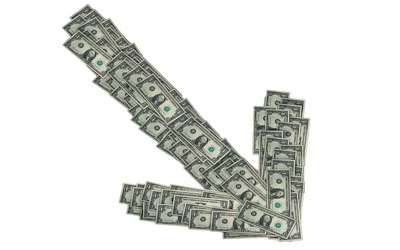- HMRC rolled out new rules on money earned through additional revenue streams, dubbed the “side hustle’ tax”.
- Rules state sellers can earn up to £1,000 without having to inform the tax man.
- From 2025, however, online marketplaces will be required to report information on UK users meeting a certain sales threshold to HMRC.
- Debt solutions expert, Chris Lenehan from PennyPlan, sheds light on how these new rules may adversely affect those already facing financial struggles.

Last week, HMRC introduced plans to tax individuals earning extra income through online buying and selling, labeling it the “side hustle tax.” With many turning to platforms like eBay and Vinted to generate additional income, this crackdown raises concerns about its impact on those navigating financial challenges.
According to Chris Lenehan at PennyPlan, “Introducing a ‘side hustle tax’ for people who sell their unwanted items online is a setback for those trying to escape debt cycles.” He emphasises the popularity of platforms like eBay and Vinted for individuals seeking to earn extra money, especially during the current cost of living crisis.
Lenehan notes, “This is for goods that have already been purchased and are being sold for a markdown rather than for-profit purposes.” He highlights the potential impact on those struggling to meet household bills, as selling unwanted items online could be crucial for financial stability.
The “Side Hustle Tax” and its Ramifications
The new rules mandate online marketplaces to disclose earnings made by sellers, leading to concerns within the online selling community. Sellers are now questioning the future viability of generating additional income through platforms like eBay and Vinted.
The regulations permit an additional £1,000 in gross income per year without informing HMRC. However, surpassing this threshold necessitates sellers to register as self-employed and file a tax return. Sellers are left grappling with uncertainties about their ability to continue leveraging online marketplaces for supplementary income.
Three Strategies to Navigate the “Side Hustle Tax
Review past sales: Evaluate sales made in the past year and ensure they fall below the £1,000 threshold. No action is required if earnings remain within this limit.
Self-employment registration: If earnings exceed the threshold, sellers must register as self-employed and submit a self-assessment tax form to comply with HMRC guidelines.
Keep track for future compliance: Stay vigilant by tracking earnings throughout the year to be prepared for the threshold and navigate future tax obligations effectively.
In the midst of a cost-of-living crisis and economic uncertainties, the timing of the “side hustle tax” raises concerns among sellers and experts alike. Chris Lenehan encourages sellers to stay informed, comply with HMRC guidelines, and explore alternative strategies to mitigate the potential impact on those relying on supplementary income from online sales. As the landscape of online selling undergoes regulatory changes, individuals are urged to adapt and proactively manage their financial activities to navigate the evolving taxation environment.
Tradersdna is a leading digital and social media platform for traders and investors. Tradersdna offers premiere resources for trading and investing education, digital resources for personal finance, market analysis and free trading guides. More about TradersDNA Features: What Does It Take to Become an Aggressive Trader? | Everything You Need to Know About White Label Trading Software | Advantages of Automated Forex Trading










































